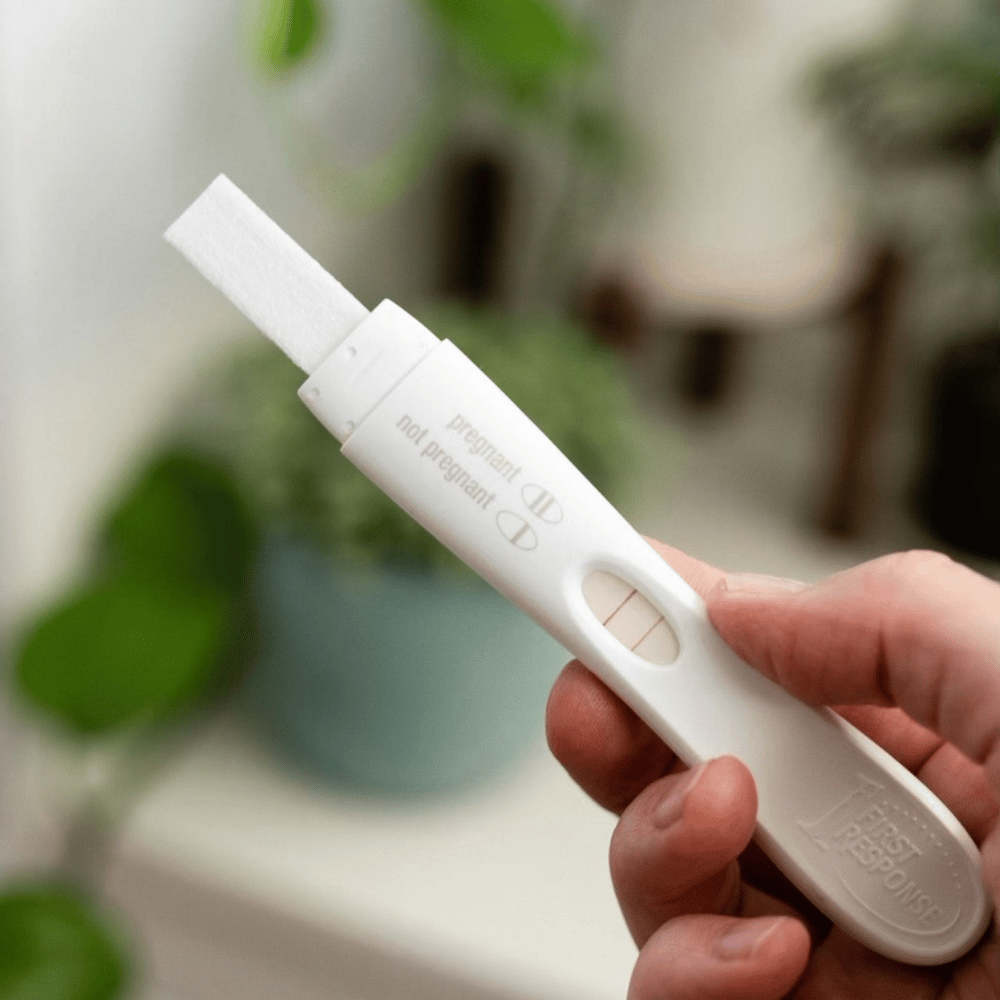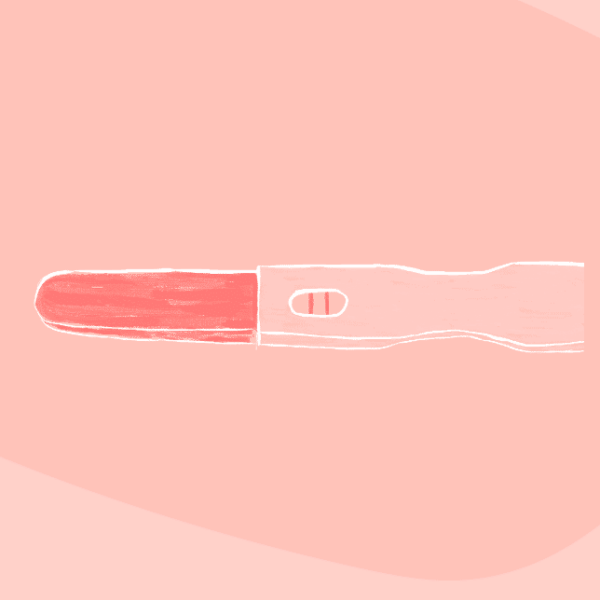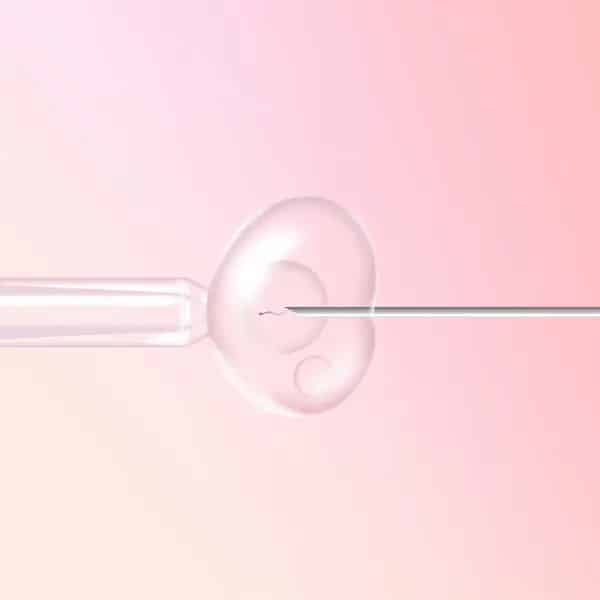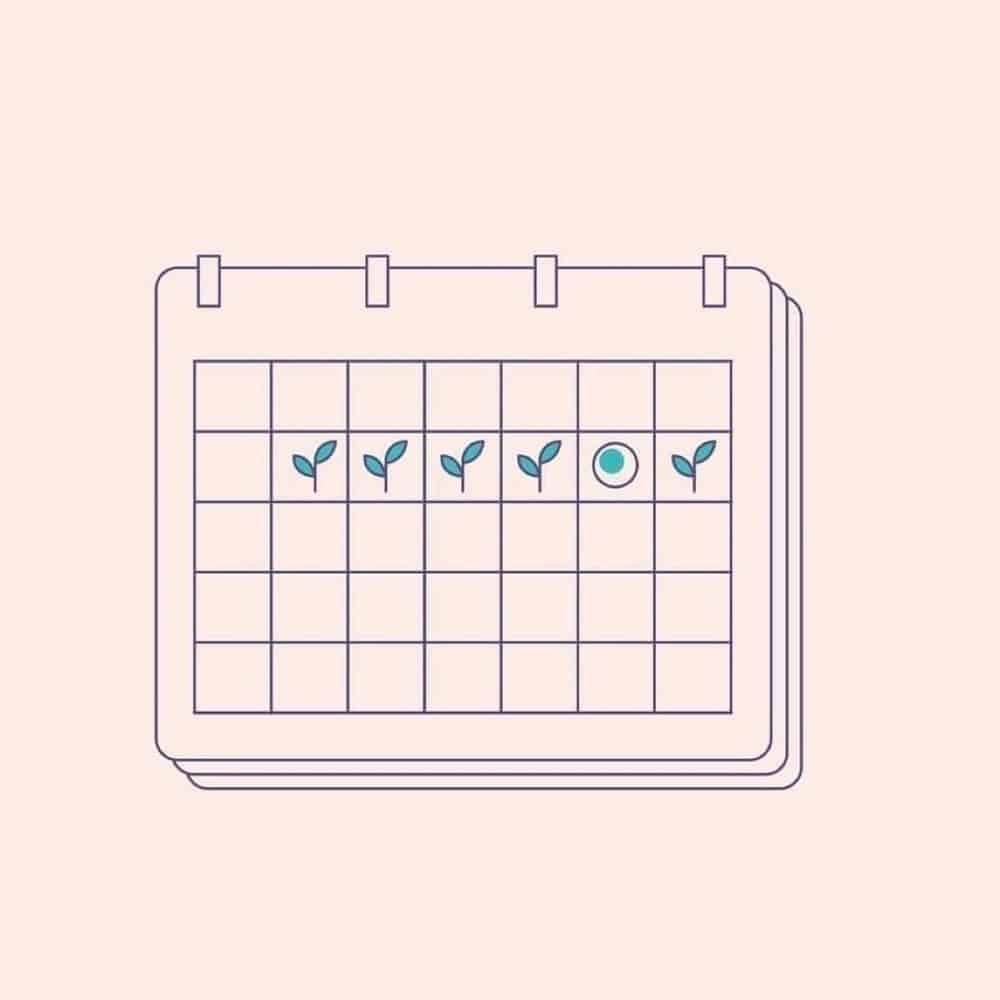In your menstrual cycle, you have a 3-5 day window The Two Week Wait
The Two Week Wait

The two week wait is the two weeks after you’ve ovulated when you’re anxiously waiting to see if your attempts to conceive have been successful.
What is the two week wait?
If you’re trying to conceive (TTC), no doubt you know all about it. It can be an incredibly anxious time for some, especially if you’ve been trying for a while. For others, there’s an element of wonder that comes with knowing that there very well could be a baby growing within you yet, for now, you wait. Regardless of how long you’ve been trying to conceive, the two-week wait can feel like an eternity.
The sea saw of emotions
We know that it’s incredibly difficult not to be consumed by the Am I? Aren’t I? seesaw and no doubt you’re picking up on every little twinge and symptom that could be a sign of pregnancy. If you have attempted to conceive with fertility assistance, there’s an added layer of anxiety about the next step in the process if you don’t conceive. You may be concerned about the ongoing costs, your age or the number of viable embryos you have left. It’s an undeniably stressful time so please don’t feel guilty for all the emotions you’re currently wading through.
There are a few things you can do during this time to ease your anxiety and facilitate a sense of relative calm:
Don’t Test Too Early:
We know how tempting it is to test as soon as you suspect a pregnancy symptom but remember that home pregnancy tests are designed to detect the pregnancy hormone human chorionic gonadotropin (or hCG) in your urine. This hormone is only released once the fertilised egg implants in the uterus, roughly five to ten days after ovulation (you can read more about implantation and implantation bleeding, HERE). It’s always best to wait till at least one day before your period is due to test. It’s also recommended that you test first thing in the morning as that is when your urine is at its most concentrated, hence the test is more likely to detect hCG if you are pregnant. Waiting to test ensures a more accurate result.
Remember that Early Pregnancy Symptoms are much like Premenstrual Symptoms:
Sore breasts, subtle abdominal cramps and feeling slightly warmer than usual are symptoms you can experience when you’re premenstrual or in early pregnancy. Try not to get too caught up in reading into each and every symptom you experience as it can dictate your thoughts and you may find that from there you’ll spiral into anxious thinking patterns.
Embrace Healthy Lifestyle Habits
For optimal preconception health, your GP will generally advise you to eat well, move your body, get plenty of sleep and take a prenatal multivitamin daily (it’s recommended that you take 400mcg of folic acid/methyl folate daily as it prevents neural tube defects). Focussing on eating a rainbow of fresh food, getting outside for gentle walks (or revitalising swims) and prioritising eight hours of sleep a night is a great way to focus your mind for the benefit of your mind and body. Healthy water intake is also essential. You’ll want to aim for 2L a day (infuse your drink bottle with lemon slices or mint leaves if drinking water is a challenge).
Dr Violet Kieu shares some great environmental changes you can make in this episode of the podcast.
Manage Your Stress:
We’re not going to tell you to relax or calm down because we know just how useless those suggestions are. Instead, we encourage you to manage your stress by utilising known relaxation techniques.
-
Firstly, create an affirmation for yourself. This could be: I’m focussing on the here and now; I’m breathing in, I’m breathing out. It’s good to have some words to come back to when you feel like your thoughts are starting to spiral; quickly shift your thinking by bringing your awareness to your affirmation and subsequently focusing on your breath.
-
Secondly, bring your awareness to your body and become aware of any parts that feel tight and achy. Lift your shoulders to release tension, practise gentle neck rotations to relax the neck and upper back, swallow the tongue to relax the jaw and take a few deep breaths, letting out gentle sighs with each exhalation.
-
Lastly, when you get into bed every night carve out an hour without screens. Instead, listen to a meditation track, sip tea, read a book…all these things will help settle you in preparation for deep sleep. And the next morning? Make sure you get some sun on your face; this helps to strengthen your circadian rhythm which, in turn, improves your sleep.
Seek Support
If you’re currently navigating fertility treatment or you’ve been diagnosed with infertility, we understand that your experience is significantly more complicated and this two-week wait is very difficult. If you are having counselling or psychology sessions alongside your treatment, make sure you schedule an appointment during the two-week wait. It’s also beneficial to connect with other women on a similar path who understand your anguish and can offer empathy and advice in return.
Our Podcast Picks for You
Categories
Related Products
-
Welcome to the First Trimester
11 reviews$67.00An informative and comforting 5-part audio course guiding you through the first 12 weeks of pregnancy.
Get your copy of our Perineal Massage Guide in your inbox
Keep Reading
We think you might enjoy these articles
@AustralianBirthStories
Follow along with us
@AustralianBirthStories
Follow along with us
@AustralianBirthStories
Follow along with us
@AustralianBirthStories
Follow along with us
@AustralianBirthStories
Follow along with us
@AustralianBirthStories
Follow along with us
@AustralianBirthStories
Follow along with us
@AustralianBirthStories
Follow along with us
@AustralianBirthStories
Follow along with us
@AustralianBirthStories
Follow along with us
@AustralianBirthStories
Follow along with us
@AustralianBirthStories
Follow along with us






